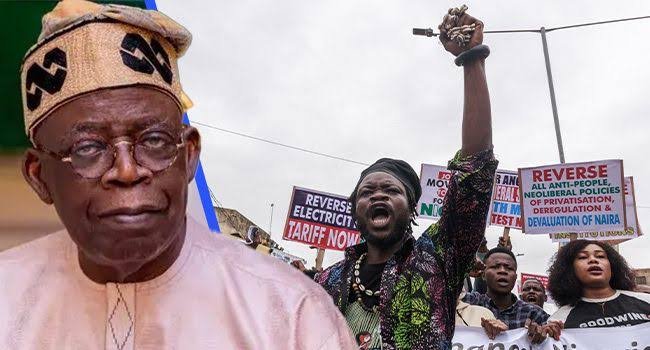During the nationwide #FearlessInOctober protests, frustrated Nigerian youths have expressed their anger at President Bola Tinubu’s administration, accusing it of stifling their voices while allowing rampant corruption to persist among politicians. This movement is a continuation of the #EndBadGovernance demonstrations held in August, which were ignited by the economic struggles many Nigerians currently face.
One protester, reflecting on the pervasive hunger in the country, condemned the government’s attempts to suppress dissent. He stated, “The Nigerian government wants to depress, suppress, oppress the Nigerian people to the point that they become so scared of expressing their fundamental rights.” Many protesters echoed this sentiment, criticizing the government’s failure to address pressing issues like insecurity, poor healthcare, and inadequate education.
Reports indicate that police have responded aggressively to the protests, with officers firing tear gas and ammunition at demonstrators in areas like Jabi and Utako in the Federal Capital Territory. As tensions escalated, protesters fled to safety, emphasizing the urgency of their message against worsening economic conditions. With the price of basic goods soaring, including a bag of rice costing around ₦100,000 and fuel exceeding ₦1,000 per litre, protesters argue that their grievances are more than justified.
